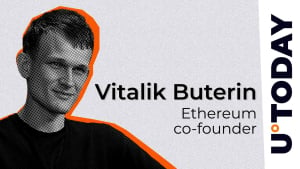ARTICLE AD BOX

Disclaimer: The opinions expressed by our writers are their own and do not represent the views of U.Today. The financial and market information provided on U.Today is intended for informational purposes only. U.Today is not liable for any financial losses incurred while trading cryptocurrencies. Conduct your own research by contacting financial experts before making any investment decisions. We believe that all content is accurate as of the date of publication, but certain offers mentioned may no longer be available.
Ethereum co-founder Vitalik Buterin recently posted an intriguing anecdote on Twitter stating that he made $5 earlier this year by participating in prediction market arbitrage. This little sum was earned more for enjoyment than for profit, he acknowledged, adding that automated bots are probably taking advantage of these opportunities more frequently these days.
A user opened the discussion by asking What prevents people from doing prediction market arbitrage? Buterin's response: Nothing. Profiting from variations in odds or prices across different platforms is known as prediction market arbitrage.
 ETH/USDT Chart by TradingView
ETH/USDT Chart by TradingViewWhen two platforms offer varying odds for an event for example an arbitrage trader can place bets on both sides and secure a profit guarantee regardless of the result. Regular participants could once again access this but now bots and algorithms rule the market spotting and carrying out these trades at a speed that human traders cannot match.
Although Buterin's experience of making $5 through arbitrage shows that there is still room for modest gains, the opportunities for manual traders have decreased as bots have become more prevalent.
Additionally prediction markets like Polymarket are becoming more and more well-liked and drawing in serious investors. People can wager on the results of future events such as political elections or economic projections using these platforms.
Particularly noteworthy is the emergence of Polymarket which provides a decentralized platform for open and unreliable speculation on actual events. Because it offers a fresh approach to hedging against or profiting from future uncertainties this has attracted interest from both institutional and retail investors.
 (1).png) 1 month ago
31900
1 month ago
31900










 English (US) ·
English (US) ·